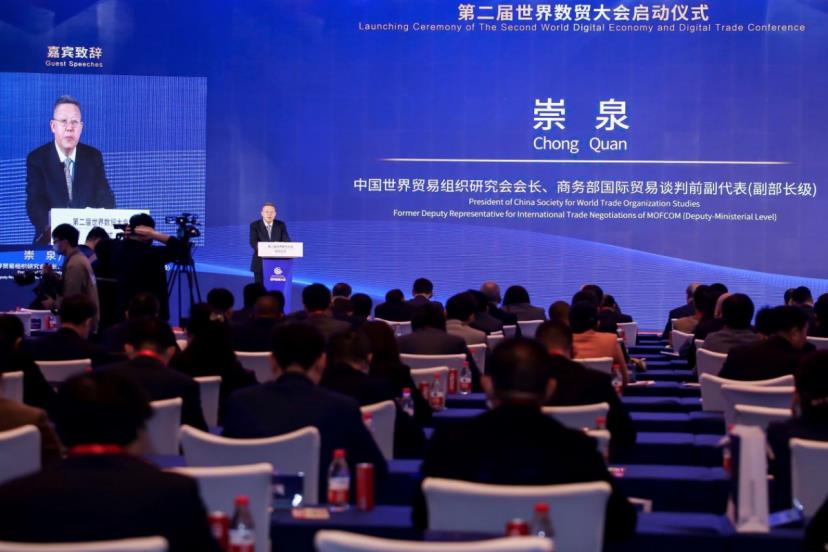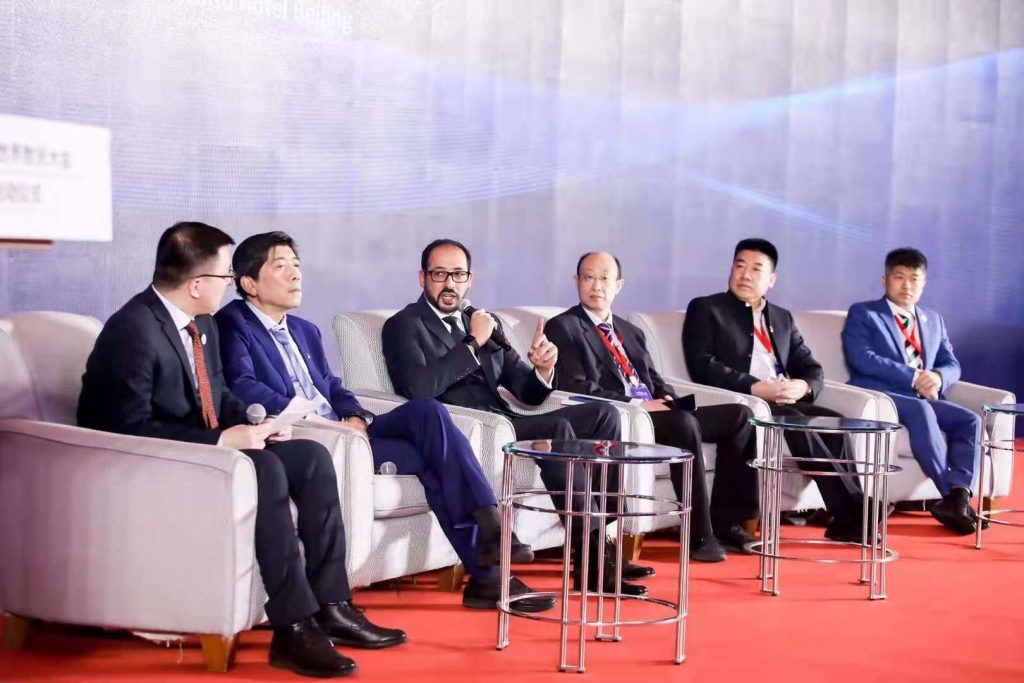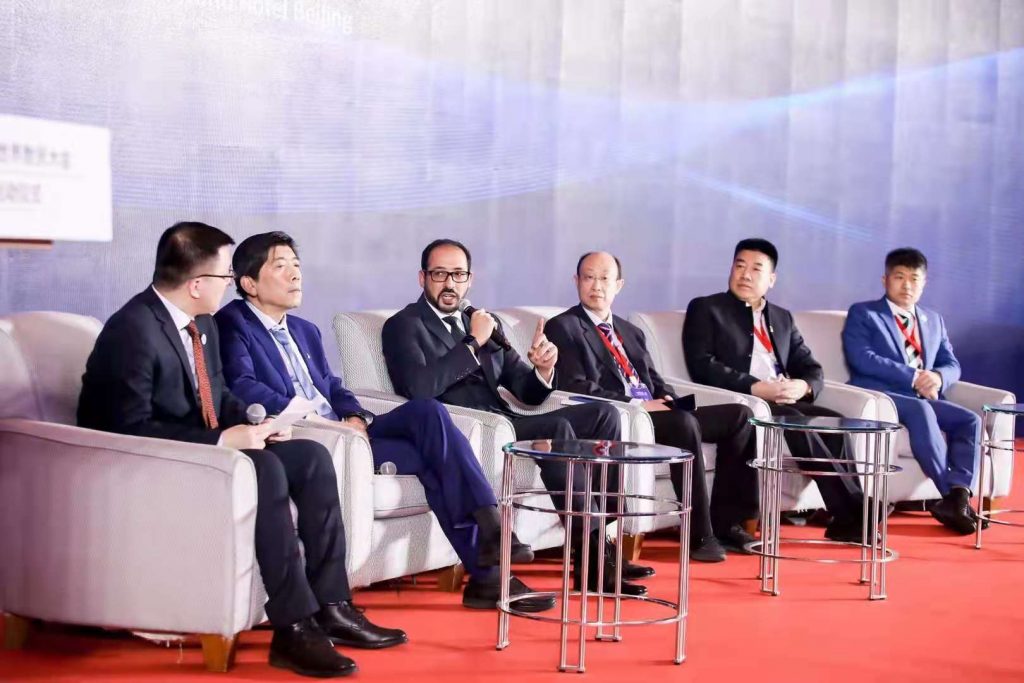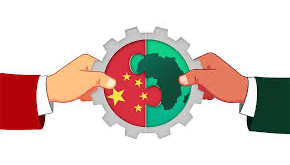
ByHanane Thamik
The launching ceremony of the second World Digital Economic and Digital Trade Conference was held in Beijing China World Hotel. The second World Live E-commerce Conference, the first China-Arab Digital Economy and Digital Trade Conference, and the first China-Arab states Digital-friendliness Investment Summit were launched simultaneously. The theme of the conference was focused on the development of global digital trade and draw up a blueprint for cooperation on the Silk Road, It aims to further strengthen the development, exchanges, and cooperation between China and the Belt and Road countries in the field of the digital economy and digital trade, and explore new paths and discover new methods for jointly building a digital-friendly community with a shared future for mankind.

Mr. Chong Quan, President of China Society for World Trade Organization Studies (Photo / Hanane Thamik)
Mr. Chong Quan, President of China Society for World Trade Organization Studies, pointed out in his speech that the use of digital technology to achieve economic inclusiveness has always been an issue that the United Nations and WTO have been paying attention to, researching, and committed to improving for a long time. China is building a digital economy and digital trade theory based on the concept of digital friendliness. We are committed to the construction of digital hardware and software infrastructure and platforms, and strive to provide healthy and safe digital public products, unite more and better digital talents around the world, bridge the digital divide, and move forward hand in hand with countries around the world to develop digital economy and digital trade.
Morocco’s digital trade development strategy and cooperation opportunities with China

Panel discussion: development opportunities of world digital economy and digital trade (Photo / Hanane Thamik)
During the conference, the Embassy of the Kingdom of Morocco in Beijing participated in a panel entitled “Development opportunities of World Digital Economy and Digital Trade”. The Embassy was represented by its Economic Counselor, Mr. Reda Oudghiri Idrissi, who presented Morocco’s digital trade development strategy and cooperation opportunities with China.
The diplomat introduced Morocco’s strategy concerning its digital economy, emphasizing that the Kingdom had made great strides in several sectors to embrace the 4th industrial revolution (or Industry 4.0) namely in the following sectors: automotive, aerospace, renewable energy, and agriculture. This strategic choice contributed to strengthening the country’s competitiveness in its immediate neighborhood and beyond.
As an illustration, the economic counselor cited Morocco’s mining giant ‘OCP Group’ as a global trailblazer in phosphates, but also in fertilizer production, R&D (using block chain, AI, supercomputing …), and agriculture. Last January, OCP Group and Hubei Forbon Technology entered into a joint venture in the R&D field to develop new generations of fertilizer solutions and smart agriculture. This is one of many avenues of cooperation between the two countries that are indeed broad-ranging.
Concerning Fintech: Mr. Idrissi put forward the possibility for China and Morocco to join hands and cooperate in a tripartite model on the African continent (under the Morocco-China-Africa format) in Financial Technology. This could be made possible by leveraging Morocco’s deep presence in Africa’s telecom and banking sectors on the one hand, and China’s powerful technological & logistical solutions, as well as its thorough knowledge of the African market, on the other hand. The two countries already have well-established relations in the IT sector, where Huawei has a significant presence.
He added that China’s cutting-edge E-commerce platforms present great opportunities for the Arab World and indeed Africa to embrace the digital era and further accelerate their economic growth while ensuring the prosperity of their people in this post-pandemic era.
Moreover, Mr. Idrissi characterized the Digital Silk Road as a potent vector connecting all countries along the Belt and Road, thus solidifying one of its founding pillars: « people-to-people bonds ».
The diplomat concluded his remarks by stating that “the Embassy’s door is and will always remain open to all Chinese companies, big or small, private and state-owned, which are willing to exchange with us and explore new avenues of cooperation in this fascinating field”.

Mr. Liu Zefeng, Secretary-General of Digital Economy and Digital Trade of China society for World Trade Organization (Photo / Hanane Thamik)
Liu Zefeng, Secretary-General of the Digital Economy and Digital Trade of China society for World Trade Organization, delivered a keynote speech on “What is happening in China’s digital trade?” He introduced to the participating diplomats and guests what is Digital Trade and Digital-Friendliness, Why and how to do it, focusing on China’s data production factors, logistics system, ICT infrastructure, 5G, bilateral market platform economy, digital trade skills training, live e-commerce, China’s digital rule of law system, digital court, Experience in the development of market supervision and alternative dispute resolution (ADR).
He called on countries along the Belt and Road to quickly conduct digital trade assessments and clarify work priorities based on digital-friendly consensus and protocols , pay attention to the cultivation of youth leadership and provide digital public products that are safe, stable, rule of law, and interoperability , As a result, digital-friendly node countries, free trade zones and cities will become innovative cities , The capitals of trade and of wealth, the livable capital, the capital of education, the capital of international digital talents.
Trade digitization is multi-party linkage system engineering, and it is a digital ecological revolution that goes deep into the industry and trade ends. In the future, China and other countries in the world should grasp the trend of digital transformation, use trade digitalization as a breakthrough point, strengthen cooperation and exchanges in the field of the digital economy, and promote the “Belt and Road” economic and trade cooperation to a deeper and higher level.
About the Author: Hanane Thamik is a Ph.D. scholar at the School of Information Management at Wuhan University. She was chosen as the Ambassador of Wuhan City to the world by Changjiang Weekly Magazine and the Moroccan Youth Representative (FOCAC 2020). She won the awards of the Belt and Road Tourism ambassador 2019, the Outstanding African Student in China 2018, the Cultural Achievement Award by UNESCO, Top 20 Outstanding Students of Wuhan University 2017, the Wuhan University Outstanding International Students award 2019, the Maotai scholarship “Excellent academic performance and outstanding overall performance and recently the Chinese Government Outstanding International Student in China 2020. She was one of the successful 54 young people around the world, who has been selected to participate in the training program of The United Nations in Switzerland in 2019. She has 18 publications among them the 5000-MILE REPORT “Africa’s international relations: What’s in store for the next decade?” which was handed to high-ranking officials at the Ministry of Foreign affairs in Beijing.
For comments or opinion write to us on info@africachinareview.com
 Africa -China Review Africa -China Cooperation and Transformation
Africa -China Review Africa -China Cooperation and Transformation
